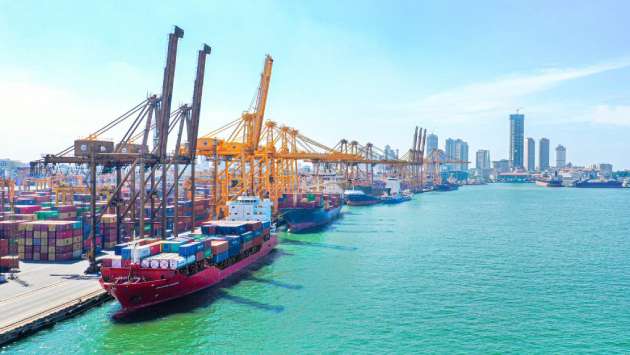July 01, Colombo (LNW): In a move poised to reshape the balance of maritime influence in the Indian Ocean, India’s state-owned Mazagon Dock Shipbuilders Ltd. (MDL) is preparing to take a controlling interest in Colombo Dockyard PLC, one of Sri Lanka’s key shipbuilding and repair facilities.
The initiative, backed by the Indian Ministry of Defence, represents not only a commercial investment but also a strategic foray into a highly sensitive geopolitical space.
The proposed acquisition, estimated at up to US$ 52.96 million, was greenlit by MDL’s board of directors, according to Indian media reports. A tripartite agreement, signed on June 27, outlines MDL’s plan to purchase the majority shareholding currently held by Japan’s Onomichi Dockyard.
This will give the Mumbai-based defence shipbuilder effective control of the Sri Lankan facility.
Mazagon Dock, often referred to as the “Shipyard of the Nation,” has a long-standing reputation for building complex naval assets, including warships and submarines. With a market capitalisation exceeding US$ 15 billion as of late June 2025, MDL’s financial and technical credentials make it a formidable player in the regional shipbuilding industry.
Colombo Dockyard, meanwhile, has been grappling with financial distress for several years, teetering on the edge of default. Amidst growing economic challenges, Sri Lankan authorities have reportedly been encouraging regional partners to invest in strategic national assets, and India emerged as a suitable candidate, given its naval expertise and proximity.
The entry of an Indian defence-linked enterprise into Colombo Port — a major transhipment hub — introduces a new dynamic into the island’s already complex foreign relations. Analysts suggest the deal enhances India’s leverage in South Asia, particularly as a counterweight to China’s growing footprint in Sri Lanka, notably through its long-term lease of Hambantota Port.
Observers warn that this acquisition could reignite regional rivalries. Whilst Japanese ownership of Colombo Dockyard was generally perceived as neutral, India’s involvement — especially through a defence manufacturer — is expected to raise eyebrows in Beijing. China has already expressed concern over India’s influence on Sri Lanka’s foreign policy, particularly following Colombo’s decision to restrict Chinese research vessels from docking in its ports.
Critics within Sri Lanka have also voiced alarm. The Frontline Socialist Party (FSP) has condemned the agreement. They argue that handing over a strategic asset to a foreign military-linked entity undermines national sovereignty and poses long-term risks to national security.
The party further claims that the deal lacks transparency and could result in significant economic loss for the country if not properly regulated.
Despite these concerns, the Sri Lankan government appears to view the investment as a necessary step toward revitalising a critical industrial facility and securing foreign capital. Negotiations are said to be ongoing, with final regulatory approvals pending.

